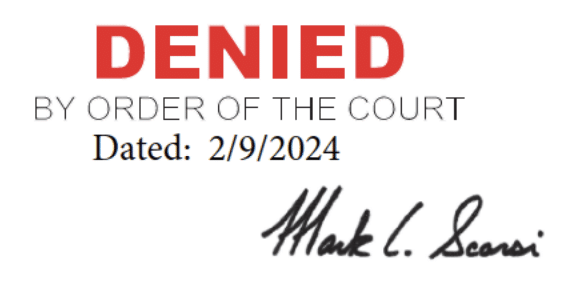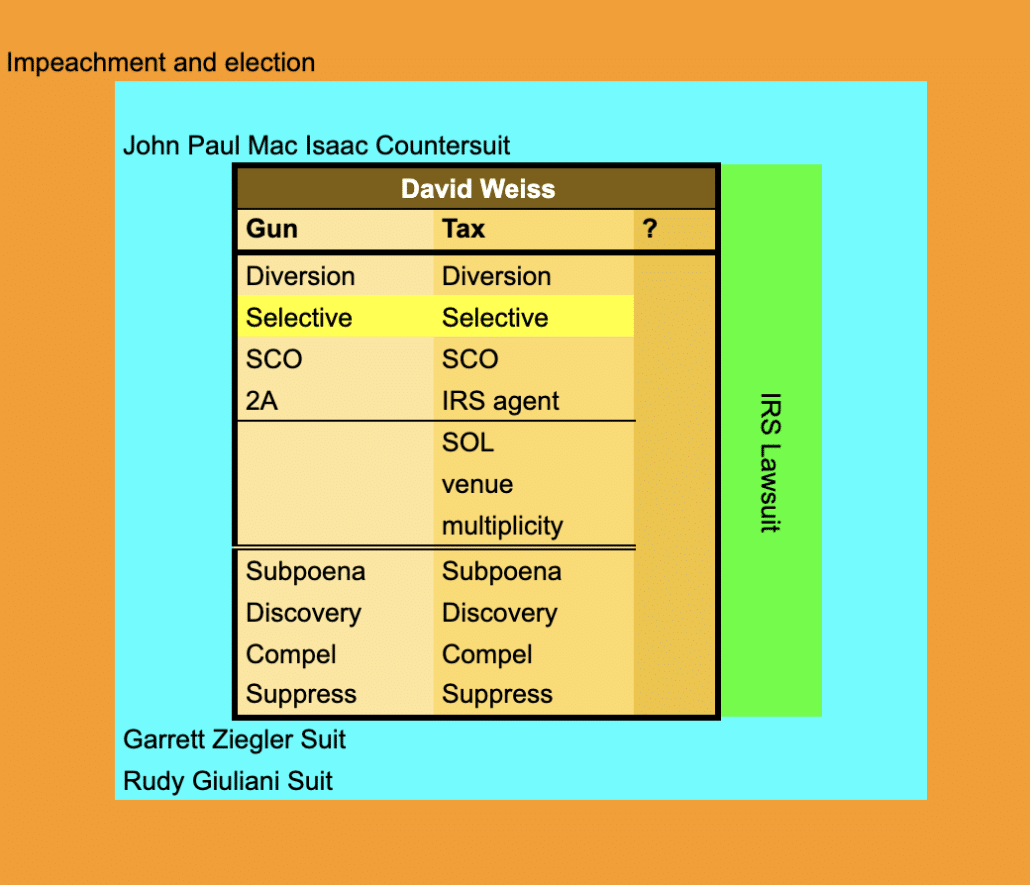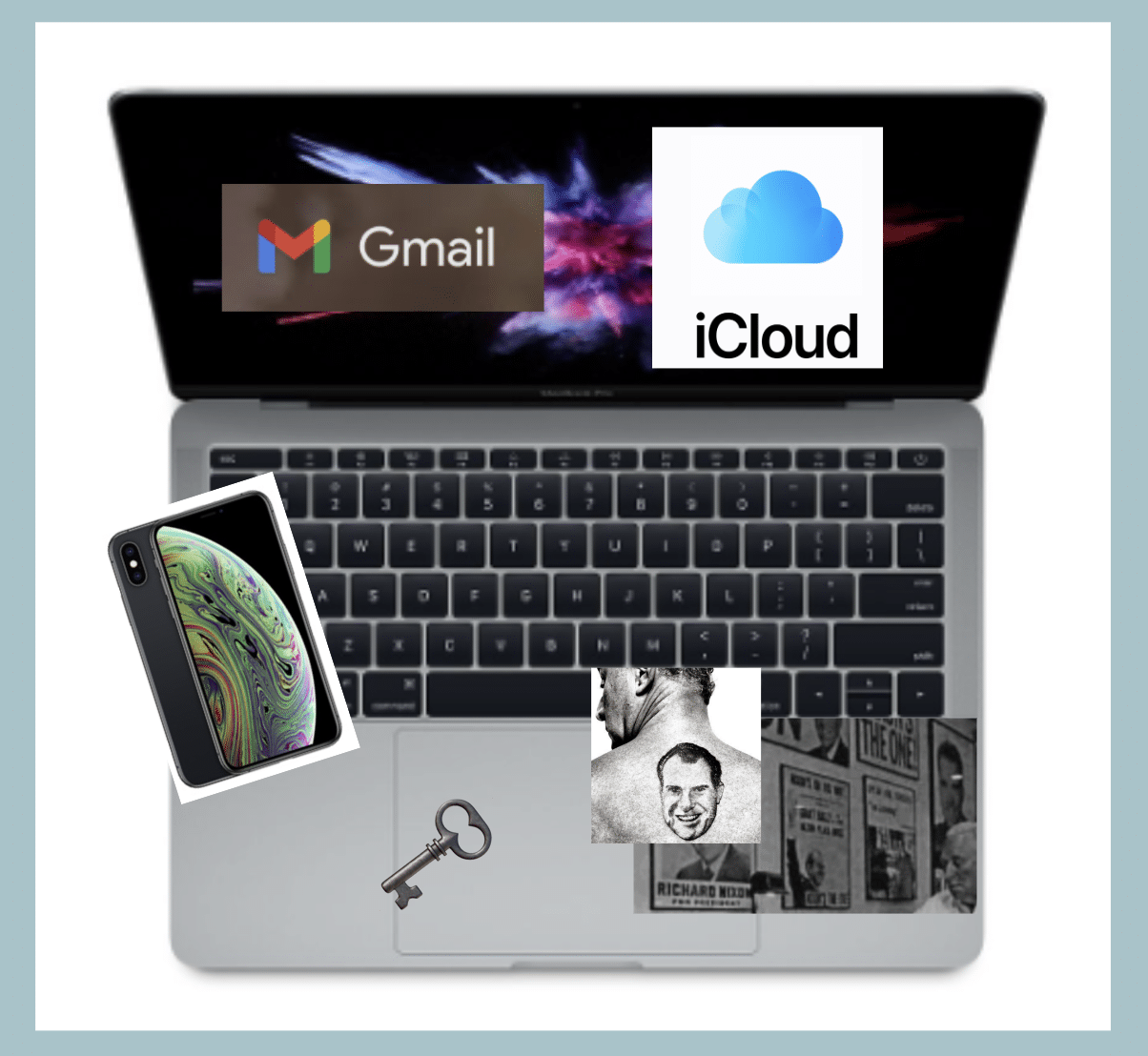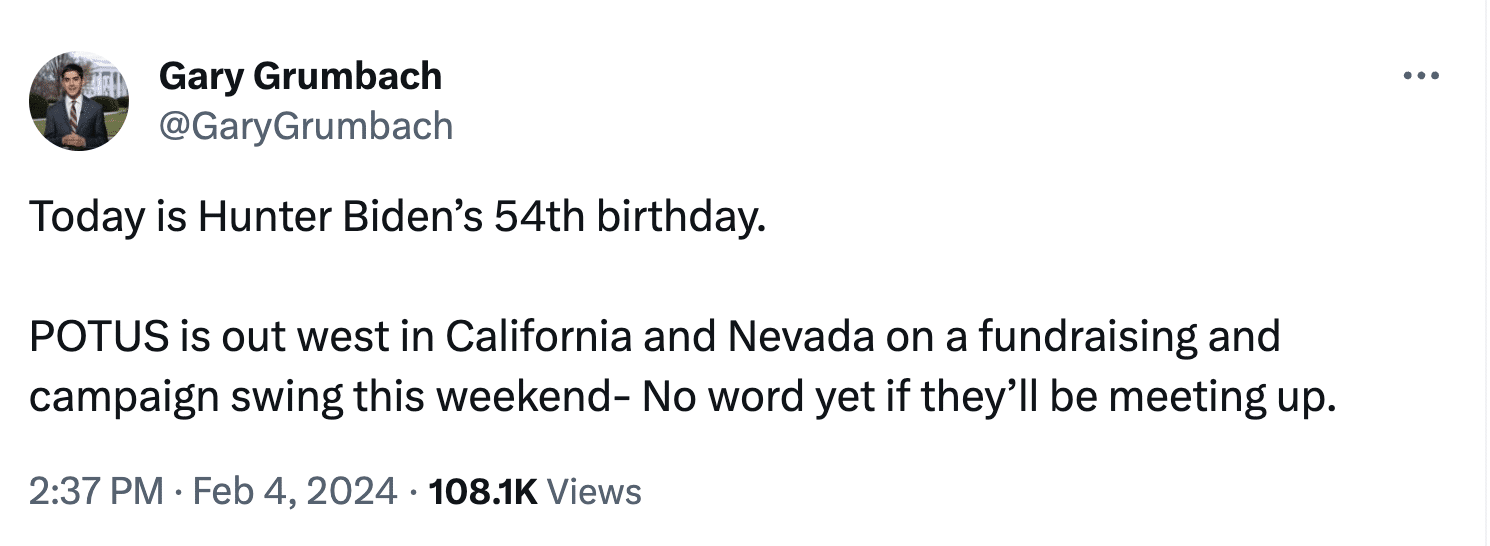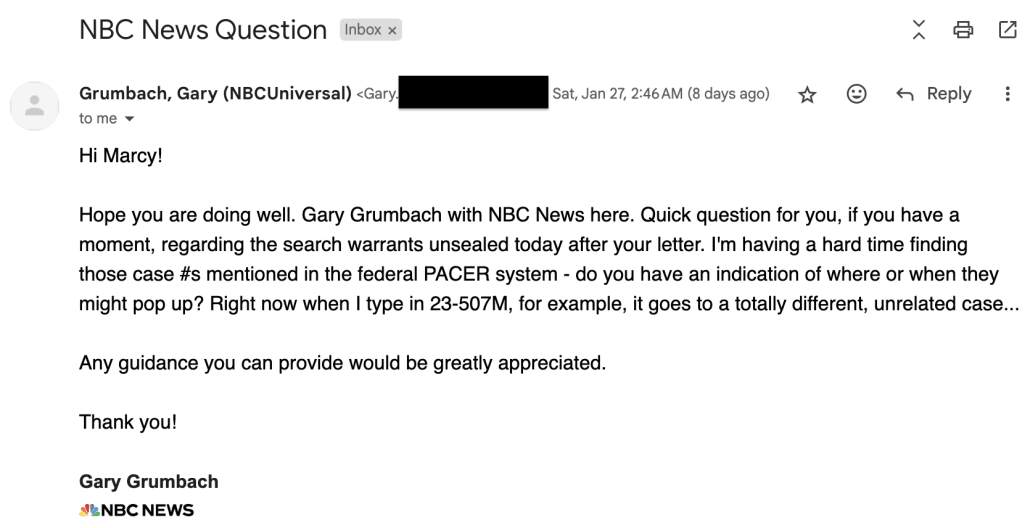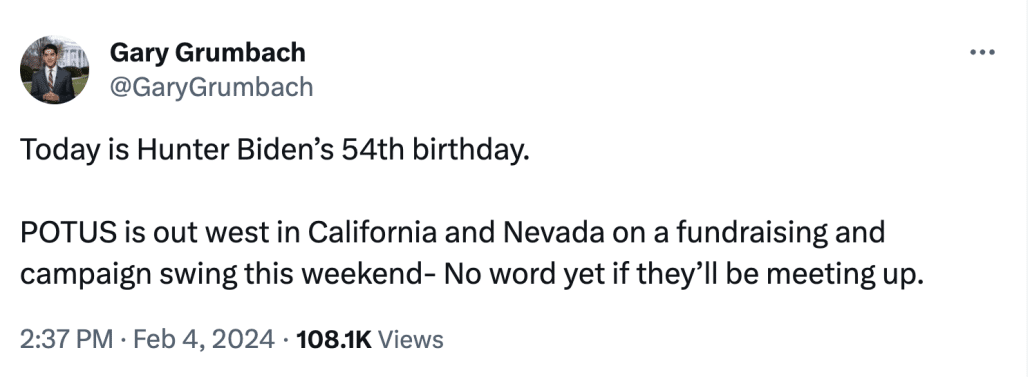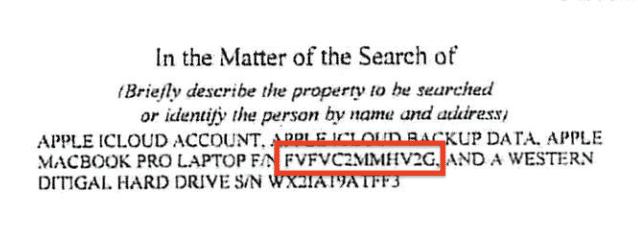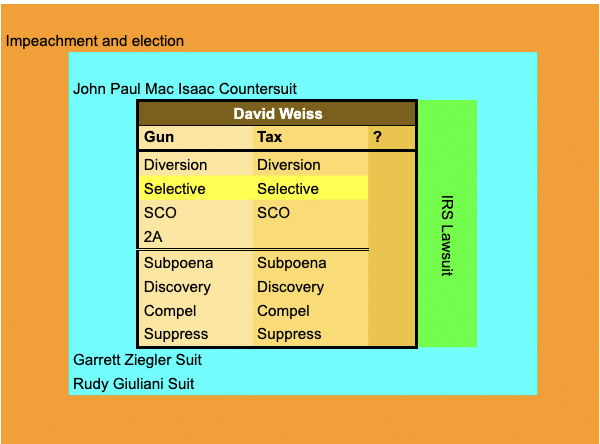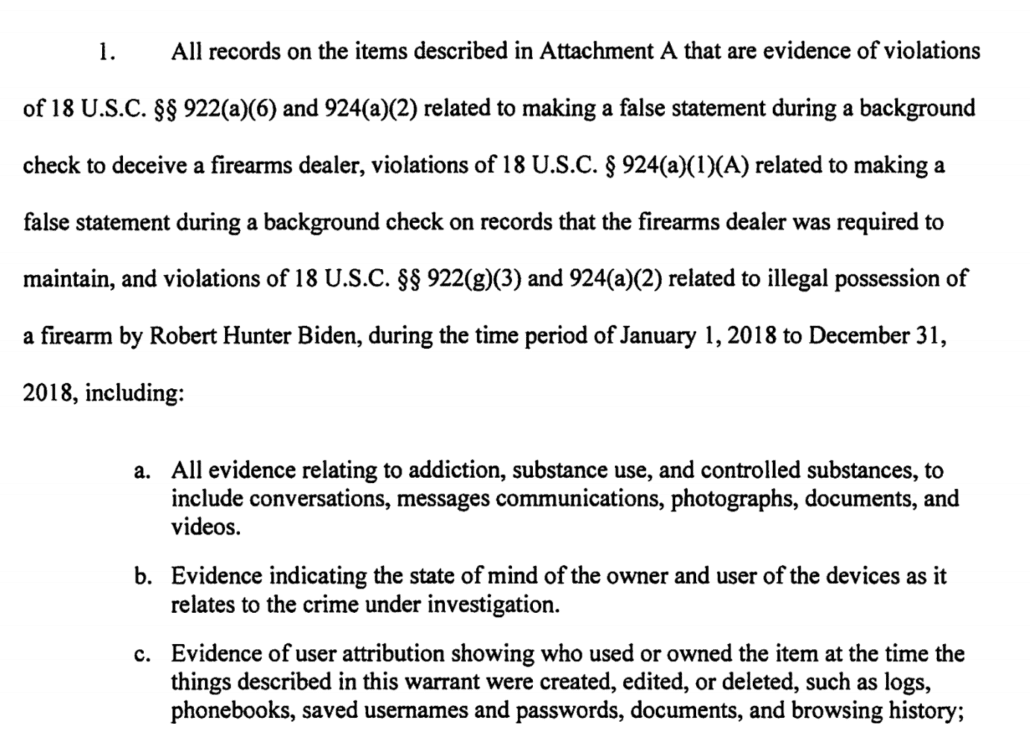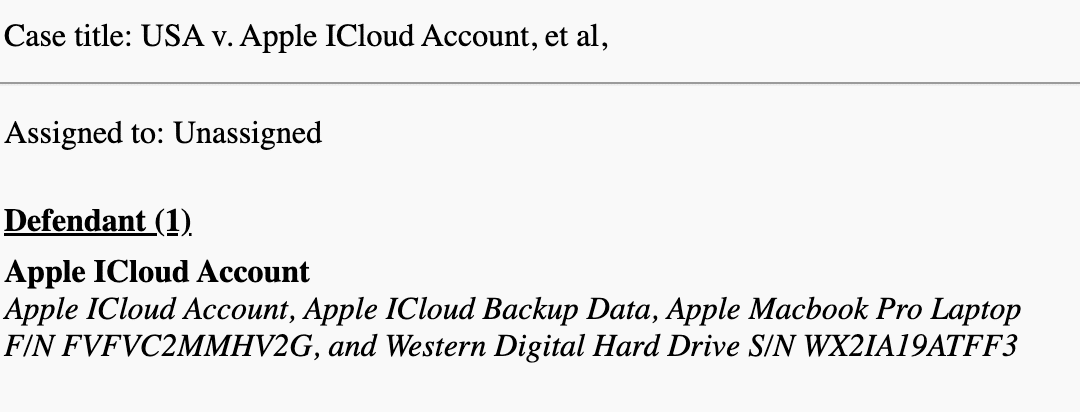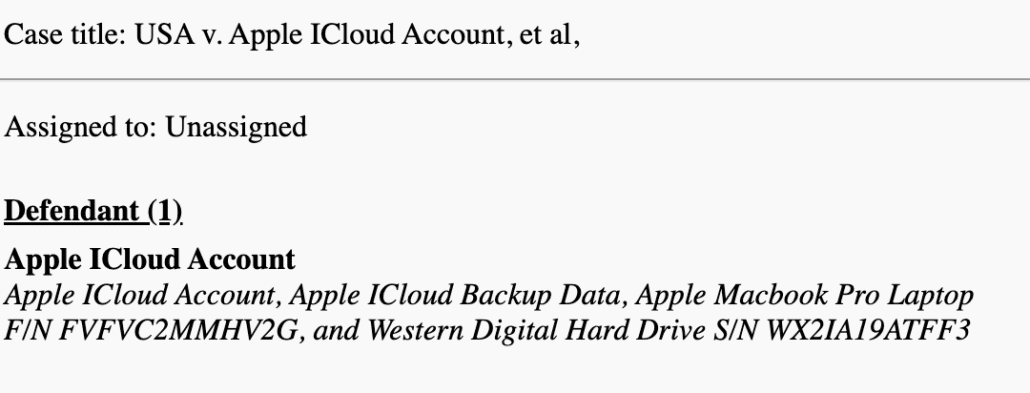Judge Mark Scarsi Refuses Accommodations That Trump’s Judges Have Granted
While the judges in former President Trump’s federal prosecutions have been issuing reasonable (in Tanya Chutkan’s case) and unreasonable (in Aileen Cannon’s case) extensions in pretrial deadlines, the judge in Hunter Biden’s Los Angeles case seems intent on keeping a politically damaging trial scheduled for the middle of campaign season, June 20.
Last week, Abbe Lowell requested two accommodations in the pretrial schedule in Los Angeles: first, that he be permitted to hold off filing the four (actually, three) filings fully briefed before Judge Maryellen Noreika that he will also file in Los Angeles: a motion to dismiss based on immunity under the diversion agreement, a selective and vindictive prosecution claim, and a claim that David Weiss was improperly appointed. Lowell also mentioned the constitutional challenge to the gun charge, but that won’t be filed in Los Angeles. At the initial appearance, Lowell said instead there would be one based on “the actions of the IRS agents that were involved.”
Here’s an updated version of my Howard Johnsons-colored table showing how all these cases interrelate, including the filings we should expect in both federal cases; I’ve put an updated version of the eight cases Lowell is juggling below (and have started tracking them here).
Lowell did not mention the as-yet unfiled motion to suppress the laptop he said he’d file in Delaware on January 30. I’ll come back to that.
In addition, Lowell requested a 3-week extension on the initial filing deadline, from February 20 to March 12, for the motions that will be unique to Los Angeles; he did not mention a filing about the IRS agents, but did mention motions on the Statute of Limitations (presumably affecting just the 2016 tax year), venue (possibly affecting both the 2016 and 2017 year), and multiplicity. To justify that, he cited a death in the family of one of the lawyers working on these filings, as well as several other deadlines pending:
- Responses to motions to dismiss in the Garrett Ziegler and Rudy Giuliani lawsuits at the end of the month
- A February 22 hearing in the John Paul Mac Isaac suit and Hunter’s countersuit
- Hunter’s February 28 impeachment deposition in the House
Judge Scarsi denied the motion with no comment.
To be sure, I’m not remotely surprised Scarsi denied Lowell’s motion to hold off on the identical motions already filed in Delaware.
At the initial appearance on January 11, Scarsi raised those filings himself.
[T]he Court has gone through and actually read what’s been filed so far in Delaware. So the Court wanted to come up to speed on the issues [at] play here. And so, we’ve got — at least we’re up to speed in what’s been filed so far.
The parties have spent, it looks like, a lot of time, or will spend time briefing issues in Delaware. And I think that should help us expedite matters here, because it wouldn’t surprise me if some of the same issues raised in Delaware are raised in this Court. In fact, the Court anticipates that happening.
Scarsi even ordered the parties to cut the 70-page filings submitted before Judge Noreika down to something like 20, double his normal limit of 10 pages (the parties have yet to file a stipulation showing that’s what they’ve agreed on).
[T]he parties know from reading the Court’s standing order, the Court’s standing order in criminal contemplates that the page limitations on motions is 10 pages. Motions and oppositions, and replies not necessary.
Now the Court is willing to grant the parties a little leeway here, to exceed the page limits, you know, contemplating doubling them, at most.
Scarsi even recognized that the diversion filing might trigger an interlocutory appeal, because he warned Lowell that the precedent (which he named) governing interlocutory appeals in the Ninth Circuit is fairly limited and directed him to address that issue in his initial filing.
At the time, Lowell knew the briefing deadline before Judge Noreika, and so could have requested to hold those three identical motions at that point.
Plus, it’s not the case that the motions will be identical. The diversion filing in Los Angeles will and always would have been mostly a place-holder; if Noreika rules against Hunter regarding the diversion agreement, then there would be no basis to make the same claim in Los Angeles absent an interlocutory appeal in Delaware. It’s only if she rules for Hunter that Lowell’s claim that the immunity in the gun diversion extends to the tax case would come into play.
The selective and vindictive prosecution filing in Los Angeles will have to swap the comparators showing how no non-violent person in recovery from addiction has been charged with the same gun charges in Delaware with comparators showing that no one who has paid their taxes, much less someone who — Abbe Lowell claims but has not yet shown proof — overstated their income has been criminally charged, with a mention of Roger Stone’s more lenient treatment as well. Lowell mentioned the two tax laws criminally prohibiting the kind of pressure that Trump exercised in Hunter’s case only in passing; they would seem to be far more central here. And given the fact that the US Attorney for Los Angeles, Martin Estrada, was among those threatened as a result of the political pressure on this case, it would seem useful for Lowell to raise the threats elicited by those demanding this prosecution.
Even the Special Counsel challenge could be tweaked given Weiss’ admission to Congress that he has never been subject to the kind of oversight from political appointees that Morrison v. Olson requires. Weiss was already functioning as a Special Counsel before demanding appointment as such, presumably to get the opportunity to write another political hit piece targeting a Biden man (or men).
I’m not even that surprised that Scarsi refused to budge on the schedule. At the initial appearance he not only warned that he likes to move quickly,
Again, if we’re going to move this case either forward or expeditiously, and efficiently — and that’s what this Court likes to do. We like to move things along, because I think it’s better for all the parties and we don’t have things linger.
But Scarsi also suggested that because he set a schedule first, Judge Noreika should now have to accommodate his schedule.
So what I’m going to do is, I’ll go ahead and issue an order with those dates. That will hopefully prevent conflict with Delaware, because this order will be in place and the Court in Delaware will likely be aware of it.
So Lowell was on notice of all of that.
There’s one thing Lowell wasn’t on notice of on January 11, and his request for a delay may be about something other than the motions to dismiss.
Delaware Superior Court Judge Robert Robinson only set the February 22 hearing in the John Paul Mac Isaac lawsuit and Hunter’s counterclaim on February 1 at 8:52 AM. Per Lowell’s declaration and email record, 38 minutes after Robinson set that hearing, Lowell first reached out to prosecutors about this delay (in their dickish fashion, they blew him off for six days).
If Robinson were to rule in Hunter’s favor — if he were to rule that, under Delaware law, JPMI didn’t own Hunter’s laptop when he first offered it up to the FBI on either October 9 (JPMI’s version) or October 16, 2019 (FBI’s), less than a year after someone who may or may not be Hunter Biden dropped it off, if he were to rule that JPMI violated his own promise to protect Hunter Biden’s data, not least by snooping through Hunter’s data well before even he, JPMI, claimed his intake form gave him ownership of the laptop — then it might have fairly dramatic impact on any motion to suppress the laptop.
That’s true, not least, because (if you can believe JPMI and it’s not clear you can), after JPMI sent a hard drive with the data across state lines to his father, the FBI told his father that, “You may be in possession of something that you don’t own.” After which JPMI and his father sent that same data across even more state lines, including to Congress and Rudy Giuliani. And yet rather than opening a criminal investigation into JPMI for interstate trafficking of the potentially stolen data of the former Vice President’s son, David Weiss instead decided to build an entire case around that data.
Worse still, JPMI’s public claims about what he saw in the data are obviously false: of particular note, there are no known emails substantiating his claims that the laptop showed, “information about Ihor Kolomoyskyi and Mykola Zlochevsky, and their involvement in using Hunter and Devon to protect the billions they embezzled from the IMF.” The crime of which JPMI told the FBI they’d find evidence on the laptop was entirely made up — and made up to create a video that might serve Trump’s impeachment defense.
Lowell’s motion to compel — submitted in Delaware two days before that hearing was set — describes receiving “The Mac Shop files.” It doesn’t describe receiving the initial FBI legal review that concluded JPMI and his father likely didn’t own that laptop or data. It doesn’t describe receiving the 302s documenting the FBI’s interactions with JPMI (302s that were also not shown to case agents who might have to testify at trial). If warnings that JPMI didn’t own this data really exist, and if prosecutors are withholding it to cover up real problems with their reliance on the laptop, it would be fairly important evidence.
A favorable Delaware ruling would likely have more impact on the Los Angeles case than anything but a ruling in favor of Hunter’s diversion argument in Delaware, because it would show that David Weiss chose to use poison fruit to investigate Hunter Biden rather than pursue a case of interstate data theft. The SDNY case against those who stole Ashley Biden’s diary and a thumb drive with tax records and photographs on it and trafficked them across state lines shows that such things can be prosecuted.
At the initial hearing, Scarsi told Lowell that the, “February 20th date is for motions that you know now that you intend to bring.” When Lowell said he’d file a motion to suppress the laptop and everything else in Delaware, he pointed to several other things — such as reliance on witness testimony from a Los Angeles grand jury post-indictment and the filing for the warrant itself post-indictment — to get as a basis to suppress. Lowell still hasn’t mentioned a motion to suppress the laptop to Scarsi. He’s likely now trying to determine whether he can and should wait on a ruling from Robinson before he files such a suppression motion to Scarsi, who has promised to rule expeditiously.
It’s not surprising that Scarsi denied Lowell’s request (though it is a telling contrast to the treatment Trump is getting).
But it is also the case that these moving parts really may affect the case before him.
Update: Abbe Lowell has filed a status report in the Delaware case in case Judge Noreika decides she doesn’t want Scarsi to preempt her.
1) Delaware Gun Case (Maryellen Noreika)
September 14: Indictment
October 3: Arraignment
October 12: First Discovery Production (350 pages focused on gun case), including iCloud data and “a copy of data from the defendant’s laptop”
October 13: Motion to Continue
October 19: Order resetting deadlines
November 1: Second Discovery Production (700,000 pages on tax charges — no mention of FARA investigations)
November 15: Hunter subpoena request
December 4: Weiss subpoena response
December 11: Motions due
- Selective and vindictive
- Immunity from Diversion
- Constitutional
- Special Counsel Appointment
- Discovery
December 12: Hunter subpoena reply
January 9: Third Discovery Production (500,000 pages focused on tax case)
January 16: Responses due
- Selective and Vindictive
- Immunity from Diversion
- Constitutional
- Special Counsel Appointment
- Discovery
January 30: Replies due
- Reply, Selective Prosecution
- Reply, Diversion Agreement
- Reply, 2A Constitional
- Reply, SCO Appointment
- Reply, Discovery
January 30: Motion to compel
2) Los Angeles Tax Case (Mark Scarsi)
Hunter was indicted on December 7 and made a combined arraignment/first appearance on January 11. At that hearing, Judge Mark Scarsi set an aggressive (and, from the sounds of things, strict) schedule as follows:
February 20, 2024: Motions due
March 11: Response due
March 18: Replies due
March 27 at 1:00 p.m.: Pretrial motion hearing
April 17: Orders resolving pretrial motions.
June 3 at 1:00 p.m.: Status conference
June 20: Trial
3) House Dick Pic Sniffing (James Comer and Jim Jordan)
November 8: James Comer sends a pre-impeachment vote subpoena
November 28: Lowell accepts Comer’s offer for Hunter to testify publicly
December 6: Comer and Jordan threaten contempt
December 13: Pre-impeachment deposition scheduled; Hunter gives a press conference and states his data has been “stolen” from him
December 13: Impeachment vote authorizing subpoena
January 10: Oversight and Judiciary refer Hunter for contempt
January 12: Lowell invites Comer and Jordan to send another subpoena, now that they have the authority to enforce it
January 14: Jordan and Comer take Lowell up on his invitation
February 28: Deposition
4) IRS Lawsuit (Tim Kelly)
September 18: Privacy Act lawsuit
November 13: DOJ asks for extension to January 16
January 16: DOJ files motion for partial dismissal
January 23: Joint motion to continue
January 30: Original deadline for Hunter response
February 5: Amended complaint
February 9: DOJ asks for delay for response from February 20 to February 27
5) John Paul Mac Isaac’s Suit and Hunter’s Countersuit (Robert Robinson)
Last summer, John Paul Mac Isaac and Hunter both sat for depositions, on May 31 and June 29, respectively.
Last fall, Hunter Biden subpoenaed people like Rudy Giuliani, Robert Costello, Steve Bannon, Yaacov Apelbaum (who made a copy of the contents of the laptop), Tore Maras (who has described adding things to the laptop). In November, Hunter also served a subpoena on Apple.
On January 4, the parties to John Paul Mac Isaac’s suit and countersuit filed to have their pending motions decided by a judge. The media defendants — CNN and Politico — are filing to dismiss. Hunter and JPMI filed competing motions for summary judgment.
And Hunter is filing to quash a bunch of subpoenas, initially 14, to Hunter’s parents, uncle, ex-wife, former business partners, and several people with his father, like Ron Klain and Mike Morell. Though after that, JPMI attempted to subpoena Hunter’s daughters.
Since then, Judge Robinson stayed John Paul Mac Isaac’s subpoenas and scheduled hearings in the Motions to Dismiss (from CNN and Politico) and Motions for Summary Judgement (from Hunter and JPMI) for February 22.
6 AND 7) Hacking lawsuits against Garrett Ziegler and Rudy Giuliani (Hernan Vera)
[RECAP Ziegler docket; RECAP Rudy docket]
September 13: Complaint against Ziegler
September 26: Complaint against Rudy and Costello; noticing Ziegler suit as related case
November 15: Ziegler gets 30 day extension
December 1: Costello gets 30 day extension
December 7: After swapping attorneys, Ziegler gets extension to December 21
December 21: Ziegler motion to dismiss and request for judicial notice (heavily reliant on JPMI suit)
January 17: Costello motion to dismiss with Rudy declaration that makes no notice of his fruit and nuts payments relating to Hunter Biden
January 22: Lowell successfully requests to harmonize MTD hearing for both hacking lawsuits
February 8: Rescheduled date for hearing on motion to dismiss
February 22: Rescheduled date for hearing on motion to dismiss
End of February: Response to motions to dismiss due
March 21: Joined date for hearing on motion to dismiss
8) Defamation against Patrick Byrne (Stephen Wilson)
November 8: Complaint
January 16: After swapping attorneys, Byrne asks for 30 day extension
February 6: Rescheduled response date

